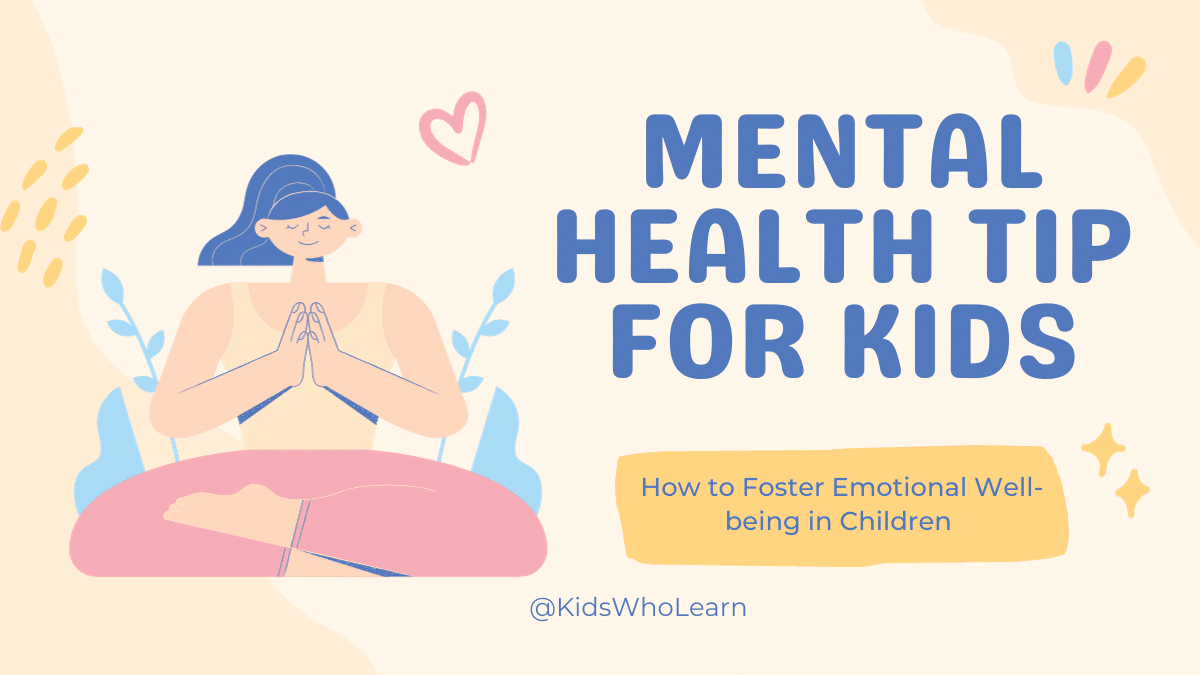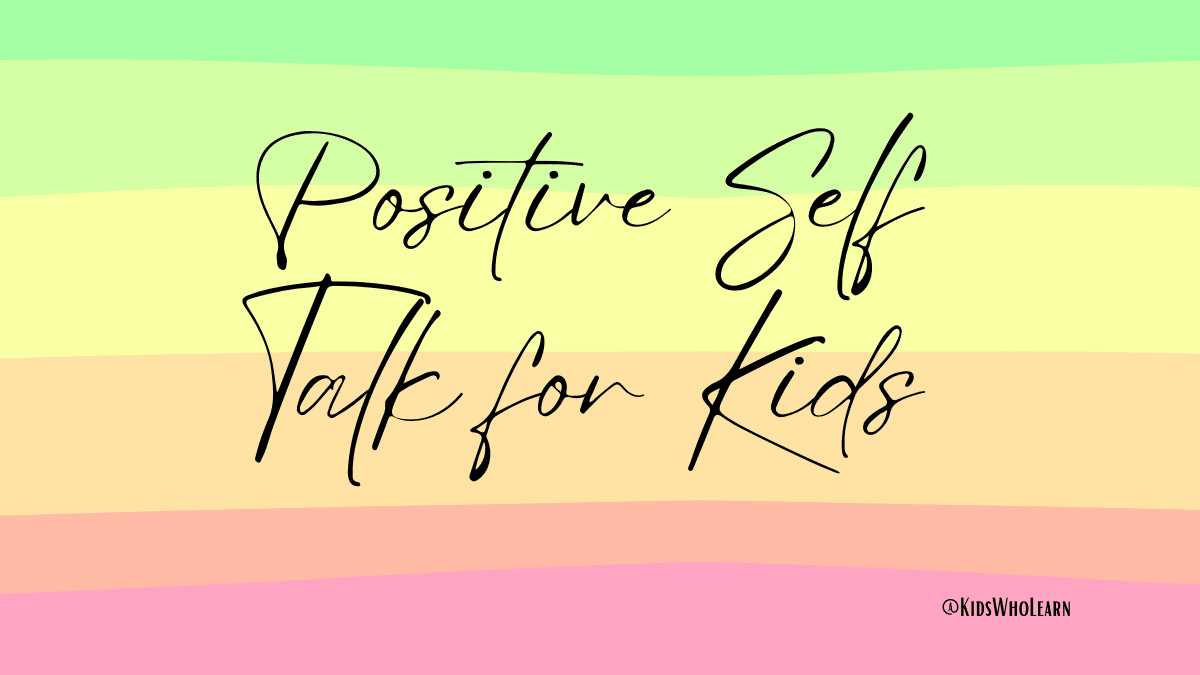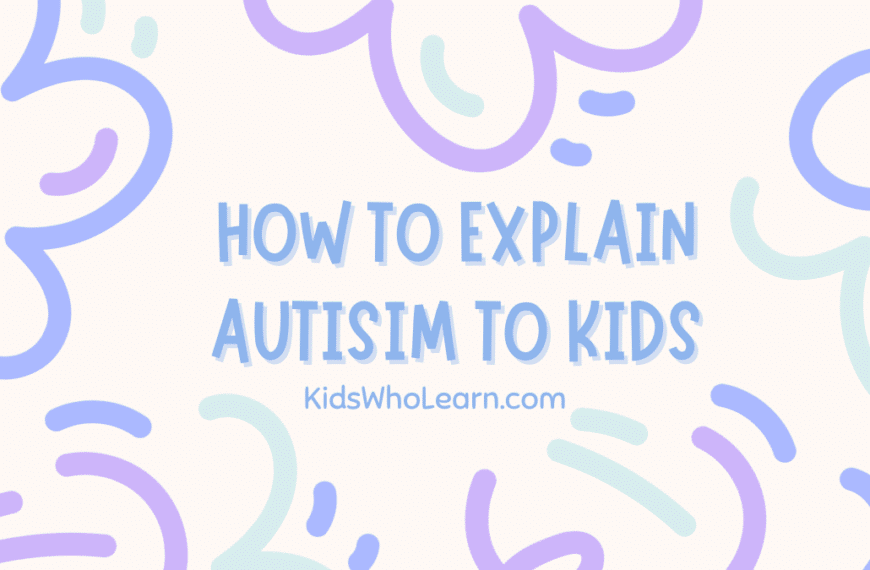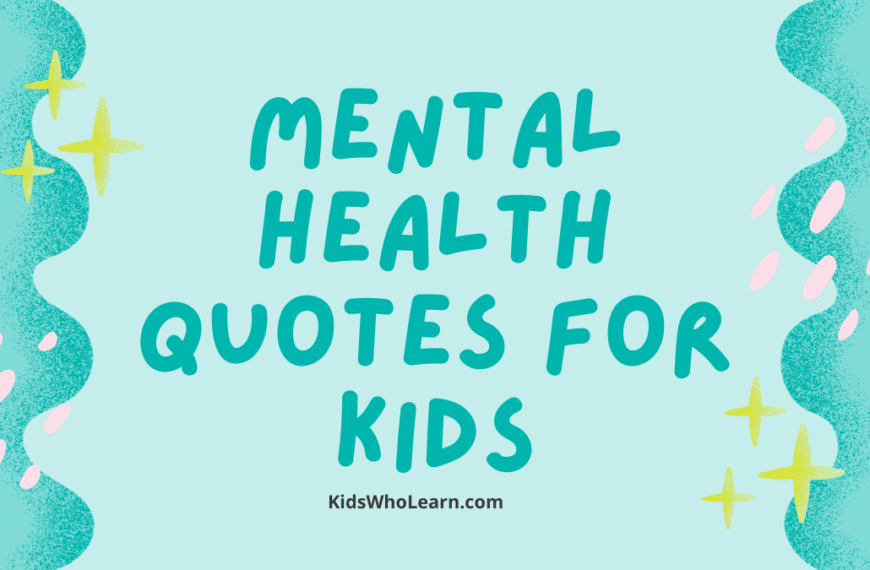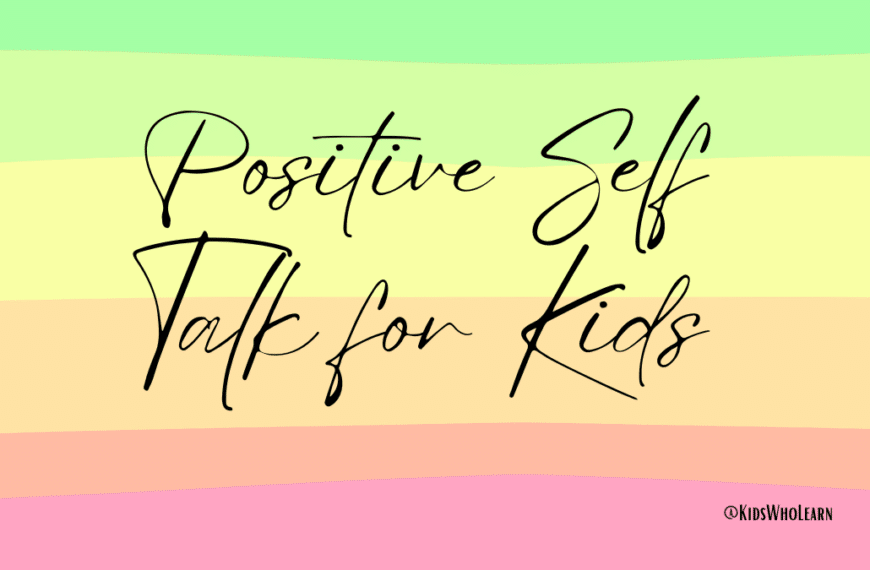Are you concerned about your child’s mental health? As a parent, it’s important to prioritize your child’s emotional well-being. With the rise of mental health issues among children, it’s crucial to equip them with the tools they need to manage their emotions and cope with stress.
In this article, we’ll provide you with some helpful tips on how to support your child’s mental health. From encouraging open communication to promoting healthy habits, there are many ways you can help your child develop resilience and cope with life’s challenges. By implementing these strategies, you can help your child build a strong foundation for mental wellness that will benefit them for years to come.
Understanding Mental Health
What is Mental Health?
Mental health refers to the overall well-being of a person’s emotional, psychological, and social state. It includes how we feel about ourselves, how we handle stress, and how we interact with others. Mental health is not just the absence of mental illness, but a state of positive mental health where we can cope with the challenges of life.
Why is Mental Health Important for Kids?
Mental health is essential for children’s overall health and well-being. It affects how they think, feel, and behave in everyday life. Good mental health helps children to develop healthy relationships, learn new things, and achieve their goals. On the other hand, poor mental health can lead to a range of problems, such as anxiety, depression, and behavioral issues.
Moreover, mental health problems in childhood can have long-term consequences that can affect a child’s life into adulthood. Therefore, it is crucial to promote good mental health in children from an early age. This can be done by providing them with a supportive and nurturing environment, teaching them coping skills, and encouraging them to seek help when needed.
Remember, mental health is just as important as physical health. By taking care of your mental health, you can lead a happy and fulfilling life.
Building Healthy Habits
Establishing healthy habits is key to maintaining good mental health. By building healthy habits, you can help your child develop a positive mindset and a healthy lifestyle. Here are some tips on how to build healthy habits for your child:
Establishing Routine
Establishing a routine is important for children as it provides structure and helps them feel secure. A consistent routine can help your child feel more in control and less anxious. Here are some tips for establishing a routine:
- Set a regular bedtime and wake-up time.
- Create a schedule for meals and snacks.
- Plan out a daily routine that includes time for homework, play, and relaxation.
- Stick to the routine as much as possible, but be flexible when needed.
Promoting Physical Activity
Physical activity is important for both physical and mental health. Regular exercise can help your child feel more energized, improve their mood, and reduce stress. Here are some tips for promoting physical activity:
- Encourage your child to participate in sports or other physical activities they enjoy.
- Plan family outings that involve physical activity, such as hiking or biking.
- Limit screen time and encourage outdoor play.
- Make physical activity a part of your daily routine.
Encouraging Healthy Eating
Healthy eating is important for both physical and mental health. A balanced diet can help your child feel more alert, improve their mood, and reduce stress. Here are some tips for encouraging healthy eating:
- Offer a variety of healthy foods at meals and snacks.
- Encourage your child to try new foods.
- Limit sugary and processed foods.
- Involve your child in meal planning and preparation.
By establishing routine, promoting physical activity, and encouraging healthy eating, you can help your child build healthy habits that will benefit their mental health.
Fostering Emotional Intelligence
Emotional intelligence is the ability to understand and manage your own emotions, as well as the emotions of others. Developing emotional intelligence is crucial for kids, as it helps them navigate social situations and build healthy relationships. Here are some ways to foster emotional intelligence in children:
Teaching Self-Awareness
Self-awareness is the ability to recognize and understand your own emotions. Kids can learn self-awareness by:
- Encouraging them to identify and label their emotions. For example, ask them how they feel when they’re angry, sad, or happy.
- Helping them understand the physical sensations that come with different emotions. For example, when you’re angry, you might feel hot and tense.
- Encouraging them to reflect on their emotions and what caused them. For example, asking them what made them feel happy or sad today.
Encouraging Empathy
Empathy is the ability to understand and share the feelings of others. Kids can learn empathy by:
- Encouraging them to put themselves in other people’s shoes. For example, asking them how they think their friend felt when they didn’t get invited to a party.
- Helping them understand that everyone experiences emotions differently. For example, some people might be more sensitive than others.
- Encouraging them to show kindness and compassion to others, even if they don’t always understand their feelings.
Promoting Healthy Expression of Emotions
It’s important for kids to learn how to express their emotions in a healthy way. Here are some tips:
- Encourage them to express their emotions through writing or drawing. For example, they could write in a journal or draw a picture of how they’re feeling.
- Teach them healthy coping mechanisms, such as taking deep breaths or going for a walk when they’re feeling overwhelmed.
- Model healthy expression of emotions yourself. For example, you could say “I feel frustrated right now, so I’m going to take a break and come back to this later.”
By teaching kids self-awareness, empathy, and healthy expression of emotions, you can help them develop emotional intelligence and build healthy relationships.
Creating a Supportive Environment
As a parent, you play a crucial role in creating a supportive environment for your child’s mental health. Here are some tips to help you create a positive and supportive environment for your child:
Importance of Open Communication
Open communication is key to creating a supportive environment for your child. Encourage your child to talk to you about their thoughts and feelings, and make sure you listen to them without judgment. This will help your child feel heard and understood, and will also help you identify any potential issues early on.
In addition to talking to your child, it’s also important to communicate with your child’s teachers and other caregivers. Make sure they are aware of any concerns you have about your child’s mental health, and work together to create a plan to support your child.
Role of Positive Reinforcement
Positive reinforcement is a powerful tool for creating a supportive environment for your child’s mental health. When your child does something well, make sure you praise them and acknowledge their efforts. This will help build their self-esteem and confidence, which can help protect them from mental health issues.
On the other hand, avoid criticizing or shaming your child when they make mistakes. Instead, use mistakes as an opportunity to teach your child and help them learn from their experiences.
By creating a supportive environment for your child, you can help promote their mental health and well-being. Remember to be patient, understanding, and supportive, and don’t hesitate to seek professional help if you have concerns about your child’s mental health.
Dealing with Stress and Anxiety
Understanding Stress and Anxiety in Kids
Stress and anxiety are common emotions that everyone experiences from time to time, including children. Stress is a normal part of life and can be caused by a variety of factors such as schoolwork, peer pressure, and family issues. Anxiety, on the other hand, is a feeling of fear, nervousness, or unease about something that may happen in the future.
It is important to understand that stress and anxiety are not the same thing, but they can be related. Stress can lead to anxiety if it is not managed properly. It is essential to identify the signs of stress and anxiety in your child so that you can help them manage these emotions.
Stress Management Techniques
There are several stress management techniques that can help your child cope with stress and anxiety. Here are a few tips:
- Encourage regular exercise and physical activity, such as playing outside or participating in sports.
- Teach your child relaxation techniques such as deep breathing, meditation, or yoga.
- Help your child develop good sleep habits by establishing a consistent bedtime routine.
- Encourage your child to talk about their feelings and concerns with a trusted adult or friend.
- Provide a healthy and balanced diet that includes plenty of fruits, vegetables, and whole grains.
- Limit screen time and encourage your child to engage in activities that promote creativity and imagination.
When to Seek Professional Help
While stress and anxiety are normal emotions, they can become overwhelming and affect your child’s daily life. If your child’s stress and anxiety persist or become severe, it may be time to seek professional help. Here are some signs that your child may need professional help:
- Your child’s stress and anxiety are interfering with their daily activities, such as school, socializing, or sleep.
- Your child is experiencing physical symptoms such as headaches, stomachaches, or difficulty breathing.
- Your child is engaging in harmful behaviors such as substance abuse or self-harm.
- Your child is expressing suicidal thoughts or behaviors.
Remember, it is okay to ask for help. Seeking professional help can provide your child with the support they need to manage their stress and anxiety.
Promoting Positive Body Image
Understanding Body Image
Body image is how you see yourself when you look in the mirror or when you picture yourself in your mind. It includes how you feel about your body, including your height, weight, and shape. Positive body image means that you feel good about your body, accepting it as it is, and recognizing that everyone has different body types.
Unfortunately, many kids struggle with negative body image, which can lead to low self-esteem and even mental health issues. Negative body image can be caused by many factors, including social media, peer pressure, and unrealistic beauty standards portrayed in the media.
Promoting Self-Love and Acceptance
Promoting positive body image is important for kids’ mental health and well-being. Here are some tips to help kids develop a positive body image:
- Encourage healthy habits: Eating a balanced diet and staying active can help kids feel good about their bodies.
- Teach self-care: Practicing self-care, such as taking a relaxing bath or getting a massage, can help kids feel good about themselves.
- Avoid negative body talk: Avoid making negative comments about your own body or others’ bodies. Instead, focus on positive aspects of your body and others’.
- Emphasize inner qualities: Encourage kids to focus on their inner qualities, such as kindness and intelligence, rather than their appearance.
- Surround with positive influences: Surround kids with positive role models and media that promote body positivity and diversity.
By promoting self-love and acceptance, kids can develop a positive body image and improve their mental health and well-being.
Conclusion
Remember, taking care of your mental health is just as important as taking care of your physical health. Here are some tips to help you maintain good mental health:
- Practice self-care by taking time for yourself to do things you enjoy.
- Stay connected with family and friends who support you.
- Get enough sleep and eat a healthy diet.
- Exercise regularly to boost your mood and reduce stress.
- Learn to manage stress by practicing relaxation techniques, such as deep breathing or meditation.
- Seek help from a trusted adult or mental health professional if you are struggling with your mental health.
By following these tips, you can help protect your mental health and build resilience to face life’s challenges. Remember, it’s okay to not be okay sometimes, and seeking help is a sign of strength, not weakness. Take care of yourself and stay mentally healthy!

